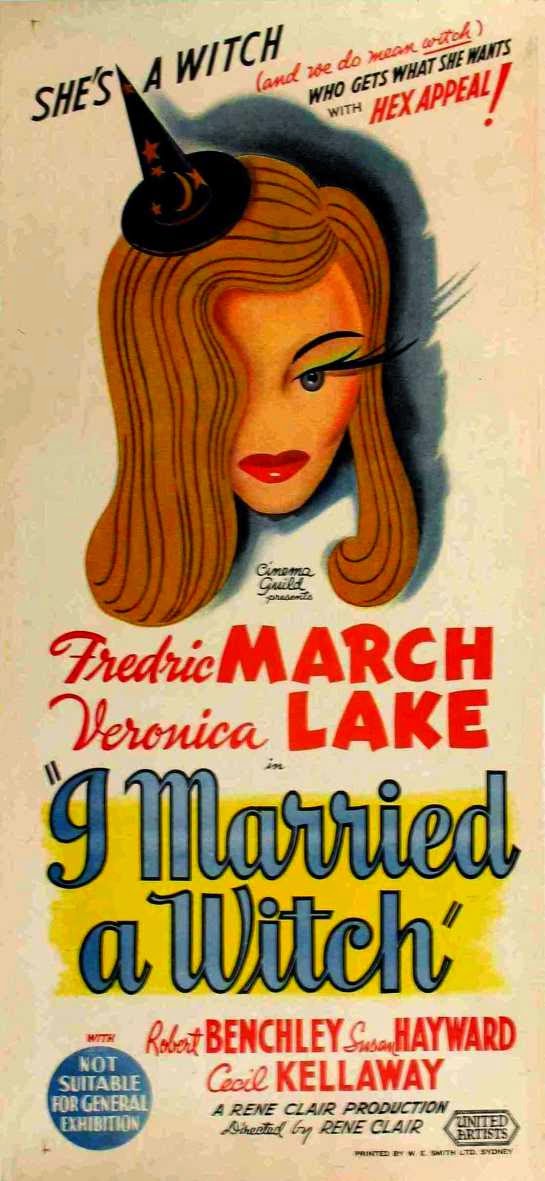I began my 1940s homework with Réné Clair’s I Married a Witch (1942), which turns
out to be a rather inauspicious opening for a two-year project. It’s a
scatter-brained comedy in which Jennifer (Veronica Lake), a witch who is burned
in 17th-century New England, her soul imprisoned in a tree, returns to seek revenge on the descendant
of the man who exposed her, a gubernatorial candidate with the rather
unfortunate name of Wallace Wooley (Fredrick March). She manages to ingest a
love philter intended for him with predictably complicated, ostensibly comic
results. Her path to happiness is obstructed by her father, a bibulous sorcerer
played by Cecil Kellaway. And so on.
I am in the middle of teaching four of Preston Sturges’s
best films right now, so perhaps I’m overly sensitive to ramshackle comic
conceits that lack the punch to make their laughs stick. The plot of Witch is certainly no less of a Rube
Goldberg device than any of Sturges’s madly jury-rigged narratives, but the
Dickensian profusion of live-action cartoons that is the Sturges stock company
drives his films forward relentlessly. All through the Clair I found myself
wishing for a small injection of Bill Demarest, Al Bridge, Dewey Robinson (not a relative of
mine), Jimmy Conlin or Torben Meyer. Where Sturges paces his films like a Usain
Bolt sprint, Clair is leisurely to the point of snoredom. Robert Pirosh and
Marc Connelly ae no substitute for the linguistic dexterity and invention of
Sturges; frankly, the verbal gags just aren’t funny. March, who is certainly
capable of deft comic performances (viz. Design
for Living), is just too eager to embrace Wally’s puritan roots with a
performance that is about as amusing as his unintentionally pompous minister in
the previous year’s lugubrious One Foot
in Heaven.
What makes all this bearable is Lake’s performance. The
writing is too unfocussed to follow through on ideas it proffers – how much mores have changed while Jennifer and
her father were trapped in a tree’s roots, the after-effects of the love
potion, Jennifer’s desire for revenge – so the film plays like a series of “senior
moments,” but Lake gives the narrative line a spine through the nuances of her
acting, making the incomprehensible shifts of focus seem altogether logical by
playing Jennifer as a whimsical, mercurial eccentric, coquettish one moment,
almost sinister the next. I Married a Witch is one of her least effective films
but she isn’t to blame.

No comments:
Post a Comment